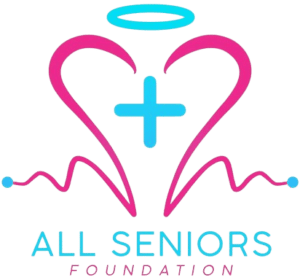Senior Centers and Community Programs in Los Angeles provide a multi-faceted approach to addressing the needs of senior citizens. These services not only improve the quality of life for the elderly but also offer significant health and economic benefits to the community at large.
Book an Appointment
Through strategic partnerships with local senior centers and community programs, All Seniors has curated a diverse array of senior-focused recreational and local activities. These activities aim not only to address the healthcare needs of the elderly but also to enhance their overall quality of life. Senior Centers and Community Programs play a crucial role in enhancing the quality of life for senior citizens. These services are especially valuable in large, diverse cities like Los Angeles, where they provide essential support to older adults. Let’s explore various aspects of these services.
Situations Where Senior Citizens May Seek Senior Centers and Community Programs
- Social Isolation and Loneliness: Older adults living alone or distant from family may seek social interaction and community connection.
- Health and Wellness Concerns: Seniors looking for exercise classes, health screenings, and wellness programs to maintain or improve their health.
- Need for Nutritional Support: Some seniors may have difficulty preparing meals or need nutritionally balanced meals offered by these programs.
- Lack of Transportation: Seniors who no longer drive or have limited access to transportation might utilize transportation services provided by these centers.
- Intellectual and Recreational Engagement: Seeking intellectual stimulation, hobbies, or learning new skills through classes and activities.
- Adjustment to Retirement: Assistance in transitioning from a work-focused life to retirement, including finding new purposes and activities.
- Financial or Legal Advice: Need for guidance on financial planning, legal issues, or understanding government benefits.
- Mental Health Support: Coping with depression, anxiety, or other mental health issues.
- Caregiver Support: Resources and respite services for spouses or family members who are primary caregivers.
- Cognitive Impairments: Programs tailored for seniors with mild cognitive impairments or early stages of dementia.
Symptoms Indicating a Need for These Services
- Feeling of Loneliness or Isolation
- Decreased Physical Activity or Mobility Issues
- Nutritional Deficiencies or Weight Changes
- Cognitive Decline or Memory Issues
- Mood Fluctuations, Depression, or Anxiety
- Difficulty in Managing Daily Living Activities
- Increased Health Concerns
- Lack of Transportation or Reduced Mobility
Common Treatments and Services Provided
- Social Activities: Combat loneliness and isolation.
- Exercise Classes: Address mobility issues and general health.
- Nutritional Programs: Provide balanced meals, addressing nutritional deficiencies.
- Educational Workshops: Stimulate intellectual engagement and skill development.
- Health Screenings: Early detection and management of health issues.
- Counseling Services: Address mental health concerns like depression and anxiety.
- Transportation Services: Assist those with mobility or transportation issues.
- Financial and Legal Advice: Help manage finances and legal matters.
- Art and Music Therapy: For cognitive stimulation and emotional wellbeing.
- Support Groups: For caregivers and those dealing with specific health issues.
Cost Savings and Health Outcomes Benefits
- Preventive Health Care: Regular participation in health and wellness programs can reduce the need for more extensive medical interventions, leading to cost savings.
- Mental Health Improvement: Social interaction and mental health services can mitigate the need for more intensive psychological treatments.
- Reduction in Hospitalizations: Engagement in physical activities and nutritional programs can lead to better overall health, reducing hospital stays.
- Support for Caregivers: Respite services and support groups can prevent caregiver burnout, preserving family health and potentially reducing the need for external caregiving services.
- Enhanced Quality of Life: These programs contribute to a sense of purpose and happiness, which is fundamental to overall health and can reduce healthcare costs associated with mental and physical ailments.
Gentle Exercise Classes:
Inclusive classes such as chair yoga, tai chi, and water aerobics, designed to accommodate varying physical abilities.
Art and Craft Workshops:
Creative pursuits like painting, crafting, and pottery, providing seniors with a creative outlet for self-expression and a sense of accomplishment.
Music and Dance Events:
Musical performances, dance classes, and music therapy sessions, fostering emotional well-being, mood improvement, and enhanced motor skills.
Local Outings and Excursions:
Organized trips to local landmarks, parks, and cultural events, offering seniors opportunities for exploration and socialization.
Technology Workshops:
Learning sessions on smartphones, tablets, and social media, empowering seniors to stay connected in the digital age.
Book Clubs and Educational Lectures:
Regular gatherings for book discussions and informative lectures on various topics, stimulating intellectual interests and fostering meaningful discussions.
Community Gardening:
Involvement in tending to community gardens, promoting physical activity, stress reduction, and a connection to nature.
These carefully selected activities reflect a holistic approach to senior care, encompassing physical, mental, and social well-being. By engaging in these pursuits, seniors not only receive vital healthcare services but also find avenues for social interaction, creativity, and personal growth. The partnership with local centers and programs demonstrates a commitment to creating a supportive and enriching environment for seniors in Los Angeles, reinforcing the idea that aging can be a vibrant and fulfilling experience when community resources are leveraged effectively.

